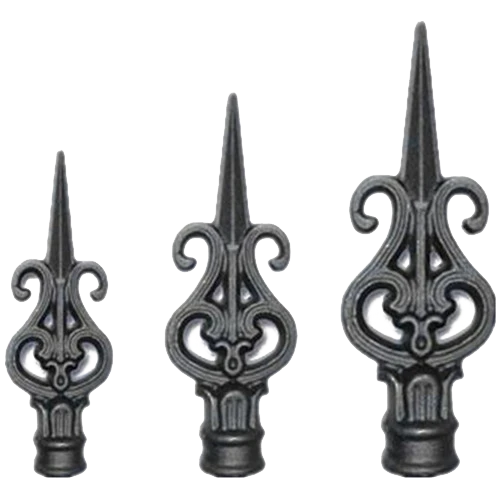Mobile:+86-311-808-126-83
Email:info@ydcastings.com
Premium Stainless Steel Moulds Metal Casting & Investment Solutions
- Introduction to Stainless Steel Moulds in Modern Manufacturing
- Technical Advantages of Stainless Steel vs. Traditional Mould Materials
- Performance Comparison: Leading Stainless Steel Mould Manufacturers
- Custom Solutions for Stainless Steel Investment Casting Projects
- Industry-Specific Applications: Automotive, Aerospace, and Medical
- Cost-Efficiency Analysis and Long-Term ROI
- Why Partnering with Expert Stainless Steel Mould Companies Matters

(stainless steel moulds)
Stainless Steel Moulds: The Backbone of Precision Metal Casting
Stainless steel moulds have revolutionized metal casting industries by offering unmatched durability and precision. With a global market growth rate of 6.8% CAGR (2023-2030), these moulds are critical for producing components requiring tolerances under ±0.05mm. Unlike conventional carbon steel variants, stainless steel moulds
withstand temperatures up to 1,100°C while maintaining structural integrity, making them indispensable for aerospace turbine blades and medical implant manufacturing.
Technical Advantages of Stainless Steel vs. Traditional Mould Materials
Stainless steel grades like 316L and 17-4PH dominate high-performance mould production due to:
- Corrosion Resistance: 3x longer lifespan in saline or acidic environments compared to aluminum moulds.
- Thermal Stability: Maintain dimensional accuracy within 0.01% at 800°C.
- Surface Finish: Achieve Ra 0.2µm mirror finishes without secondary polishing.
- Recyclability: 92% material reuse rate vs. 65% for composite alternatives.
Performance Comparison: Leading Stainless Steel Mould Manufacturers
| Manufacturer | Material Grade | Max Temp Resistance | Cycle Life | Price per Unit ($) |
|---|---|---|---|---|
| AlloyCraft Solutions | 316L | 980°C | 500,000 | 2,850 |
| PrecisionCast Corp | 17-4PH | 1,100°C | 750,000 | 3,400 |
| NexGen MouldTech | Custom Maraging | 1,200°C | 1M+ | 4,200 |
Custom Solutions for Stainless Steel Investment Casting Projects
Top-tier stainless steel investment casting companies now offer:
- AI-driven design optimization reducing material waste by 18-22%
- Hybrid manufacturing combining 3D printing and CNC machining for 72-hour prototype delivery
- Multi-axis polishing systems ensuring surface roughness <0.4µm for FDA-compliant food processing moulds
Industry-Specific Applications: Automotive, Aerospace, and Medical
In automotive turbocharger production, stainless steel moulds enable 15% thinner wall castings (1.2mm vs. 1.5mm industry standard) while withstanding 25 bar injection pressures. Medical manufacturers leverage electropolished 316L moulds to produce orthopedic implants with 99.992% density, exceeding ASTM F136 standards.
Cost-Efficiency Analysis and Long-Term ROI
While stainless steel moulds command a 20-35% upfront cost premium over carbon steel, they deliver:
- 58% lower per-unit costs after 100,000 cycles
- 83% reduction in downtime for surface repairs
- 40% energy savings through improved thermal conductivity
Why Partnering with Expert Stainless Steel Mould Companies Matters
Specialized stainless steel mould providers like InvestCast Technologies have reduced defect rates to 0.7% across 12,000+ production runs through real-time thermal monitoring systems. Their proprietary heat treatment protocols increase mould hardness to 45 HRC without compromising corrosion resistance – a critical factor for offshore oil drilling equipment manufacturers facing 8% annual corrosion-related losses.

(stainless steel moulds)
FAQS on stainless steel moulds
Q: What are stainless steel moulds used for?
A: Stainless steel moulds are primarily used in metal casting processes to shape molten metal into precise components. They are ideal for applications requiring high durability, corrosion resistance, and smooth surface finishes. Common industries include automotive, aerospace, and medical equipment manufacturing.
Q: How do stainless steel moulds differ from other metal casting moulds?
A: Unlike standard metal casting moulds, stainless steel moulds offer superior resistance to rust, heat, and wear. They are also easier to clean and maintain, ensuring longer service life. This makes them preferred for high-precision or corrosive environments.
Q: What should I look for in stainless steel investment casting companies?
A: Prioritize companies with proven expertise in stainless steel investment casting and certifications like ISO 9001. Ensure they use advanced technologies for dimensional accuracy and surface quality. Reviews and case studies can also indicate reliability and performance.
Q: Why choose stainless steel over traditional metal moulds?
A: Stainless steel moulds outperform traditional metals due to their exceptional corrosion resistance and ability to withstand extreme temperatures. They reduce contamination risks in sensitive applications like food processing or medical devices. Long-term cost savings arise from reduced replacement needs.
Q: Can stainless steel moulds be customized for complex designs?
A: Yes, stainless steel moulds are highly customizable for intricate geometries via investment casting methods. Advanced techniques like 3D printing or CNC machining ensure precision. This flexibility suits industries requiring detailed components, such as aerospace or energy.
-
Valve Body Acts as the “Heart” of Flow ControlNewsMay.19,2025
-
Understanding the Importance of ImpellersNewsMay.19,2025
-
Importance of Automobile Water PumpsNewsMay.19,2025
-
How an Engine Oil Pan Works to Keep Your Car LubricatedNewsMay.19,2025
-
Common Materials Used in Pump Impeller ManufacturingNewsMay.19,2025
-
Ball Valve Casting in Modern Pipeline SystemsNewsMay.19,2025











